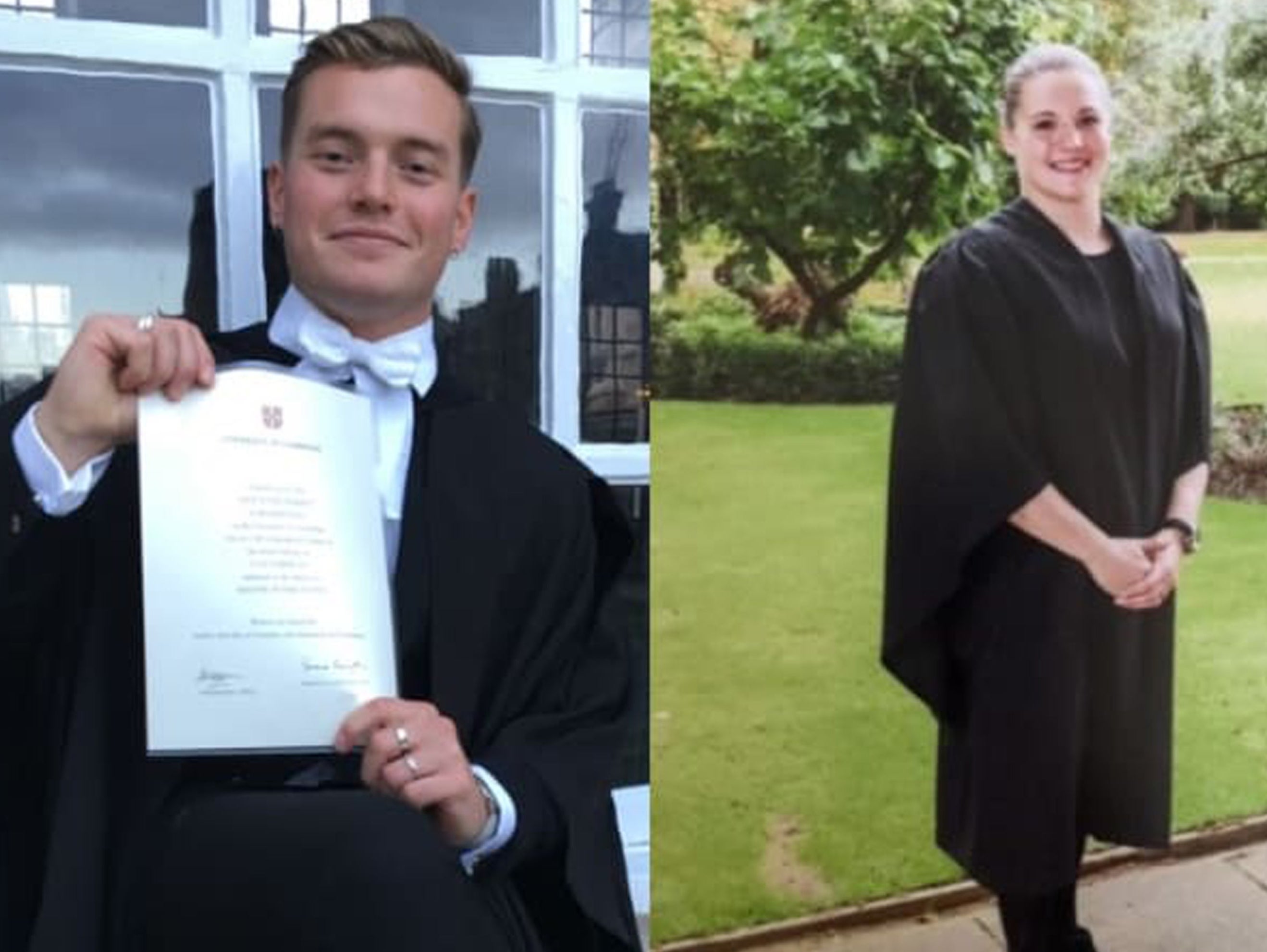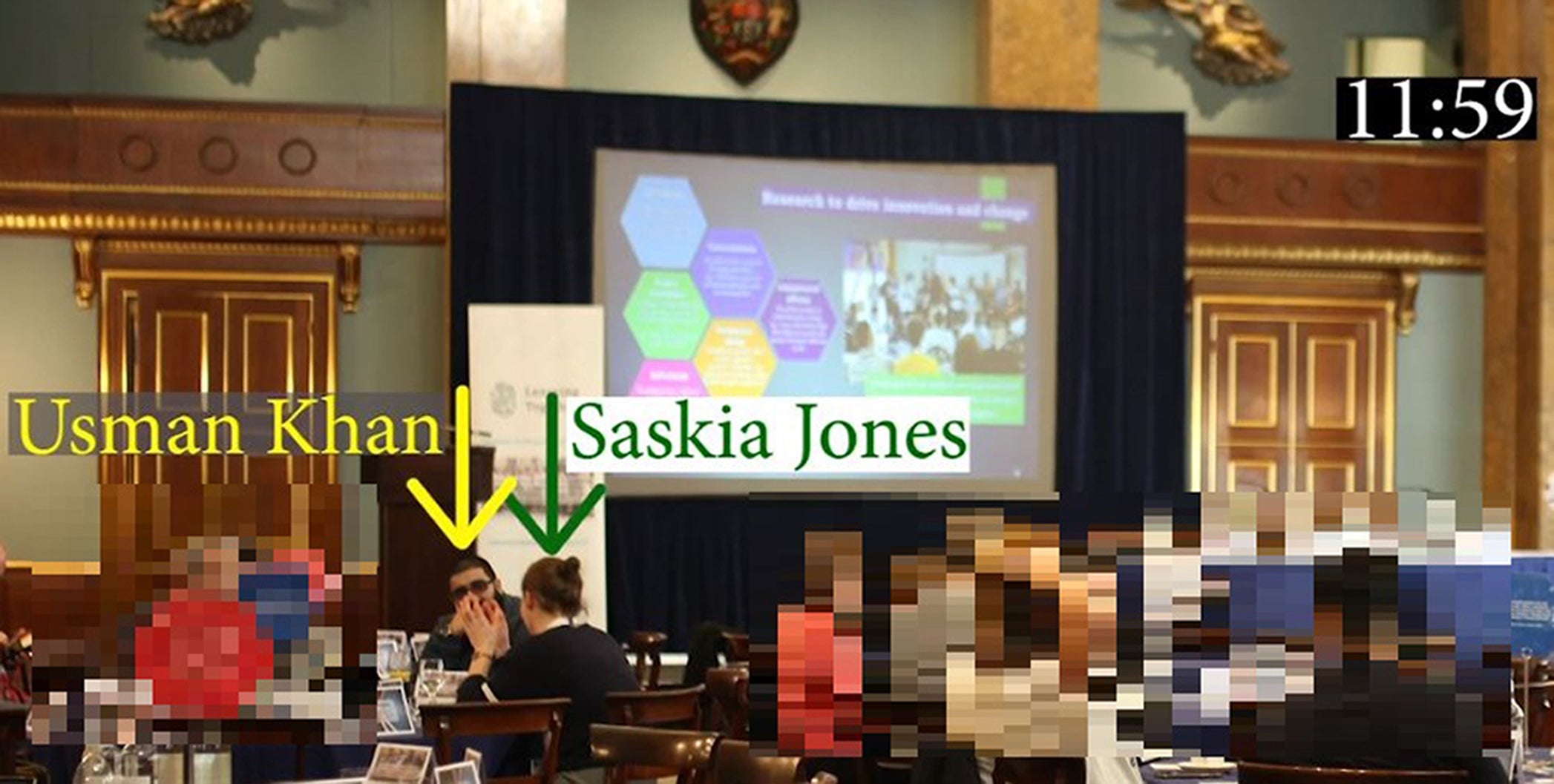Fishmongers’ Hall terrorist told rehabilitation conference he was turning from ‘wrong path’ before launching attack
Usman Khan was a guest at the conference after having taken part in rehabilitation courses

Your support helps us to tell the story
From reproductive rights to climate change to Big Tech, The Independent is on the ground when the story is developing. Whether it's investigating the financials of Elon Musk's pro-Trump PAC or producing our latest documentary, 'The A Word', which shines a light on the American women fighting for reproductive rights, we know how important it is to parse out the facts from the messaging.
At such a critical moment in US history, we need reporters on the ground. Your donation allows us to keep sending journalists to speak to both sides of the story.
The Independent is trusted by Americans across the entire political spectrum. And unlike many other quality news outlets, we choose not to lock Americans out of our reporting and analysis with paywalls. We believe quality journalism should be available to everyone, paid for by those who can afford it.
Your support makes all the difference.A terrorist told a prison rehabilitation conference he had been going down the “wrong path” and was now turning a “different way” before launching a deadly knife attack, an inquest has heard.
Usman Khan, 28, murdered two people and stabbed several others in a rampage at Fishmongers’ Hall in London on 29 November 2019.
He had been invited to an event held by Cambridge University’s Learning Together programme, which he had joined while serving a prison sentence over a previous terror plot.
The inquest into his victims’ deaths heard that Khan listened to talks on the same table as Saskia Jones, whom he would go on to kill, then attended a separate workshop before launching the attack shortly before 2pm.
Catherine Jaquiss, a barrister who sat at the same table as Khan during the workshop, said it was about “turning points” in people’s lives where they had made major choices.
Read more:
She told jurors on Tuesday: “I remember him saying something to the effect of he had been involved with a group of people who had been leading him down the wrong path.
“He had now seen that way was wrong and he was now, essentially, turning the other way or going a different way.”
Asked how Khan appeared, Ms Jaquiss said: “Perhaps a little shy. I didn't notice anything out of the ordinary at all at the time.”
Millicent Grant, a legal executive who attended the event, said Khan’s comments came near the end of the workshop, minutes before he started his stabbing spree.
In a written statement that was read to the hearing, she said Khan said he had benefited from the Learning Together programme, which was holding the event to celebrate its fifth anniversary.
She added: “He seemed to be implying that if people, his friends for example, weren’t making the right choices, he would be able to influence them.”
Ms Grant said Khan spoke with a “clear calm voice” and that his behaviour did not concern her at the time.

She believed that he was due to appear on stage to share his thoughts following a short break but instead he went to the men’s toilets to make his final preparations for the attack.
The inquest heard that Khan was already wearing a fake suicide vest under his clothes, which he concealed by wearing a large coat throughout the event.
Benjamin Jarman, a Cambridge PhD student who attended the conference, said he thought Khan looked “nervous” and planned to open a conversation by asking if he was too warm.
In a statement read by counsel to the inquest Aaron Moss, Mr Jarman said: “He was looking anxious ... I was going to ask him where he was from and mention he must have been warm in his coat.”
Police believe Khan donned the suicide vest during his train journey from his home in Stafford to London earlier in the day, then made further preparations after the workshop ended and people went on a break.
In a toilet cubicle, he taped two large kitchen knives that he had been carrying in a bag to his hands and emerged as his first victim entered the toilets by chance.
Khan stabbed Learning Together employee Jack Merritt, 25, multiple times before moving into an adjacent cloakroom where he fatally stabbed Jones, 23.
Witnesses giving evidence to the inquest described hearing screaming and a commotion coming from the reception area of Fishmongers’ Hall as Khan continued the attack.
Ms Jaquiss said that after a refreshment break at the end of the workshop, she heard screaming and grunting coming from downstairs.
The barrister, who knew Mr Merritt from her previous involvement with Learning Together, told the jury a man came into the room, “who said there is a man downstairs with knives and a bomb strapped to him”.
Filmmaker Amy Coop, who was recording a feedback session when she heard screaming and shouting, went on to a landing to see what was happening.
She told the jury: “There was more screaming and shouting and it very quickly became apparent that something very bad had happened.
“As soon as I stepped out on to the landing it was clear that something was going on.”
She saw Jones lying injured and “ashen” on the stairs, with a man kneeling next to her trying to give first aid.
The inquest heard that Jones died at the scene after attendees and police attempted CPR, while Merritt was declared dead after being taken a short distance to an emergency services rendezvous point.
Khan was chased out of Fishmongers’ Hall by attendees and staff, who wielded weapons including an ornamental pike, fire extinguisher and narwhal tusks.
They managed to pin Khan to the ground on London Bridge by the time armed police arrived shortly after 2pm.
Khan was shot by one officer after his “authentic-looking” suicide vest became visible and then again by several armed officers after he sat up around eight minutes later.
The inquest into his victims’ deaths is expected to last for several weeks and will be followed by a separate jury inquest into the death of Khan.
The inquests will examine the monitoring of Khan after he was released from prison in December 2018 and his participation in rehabilitation and de-radicalisation programmes.